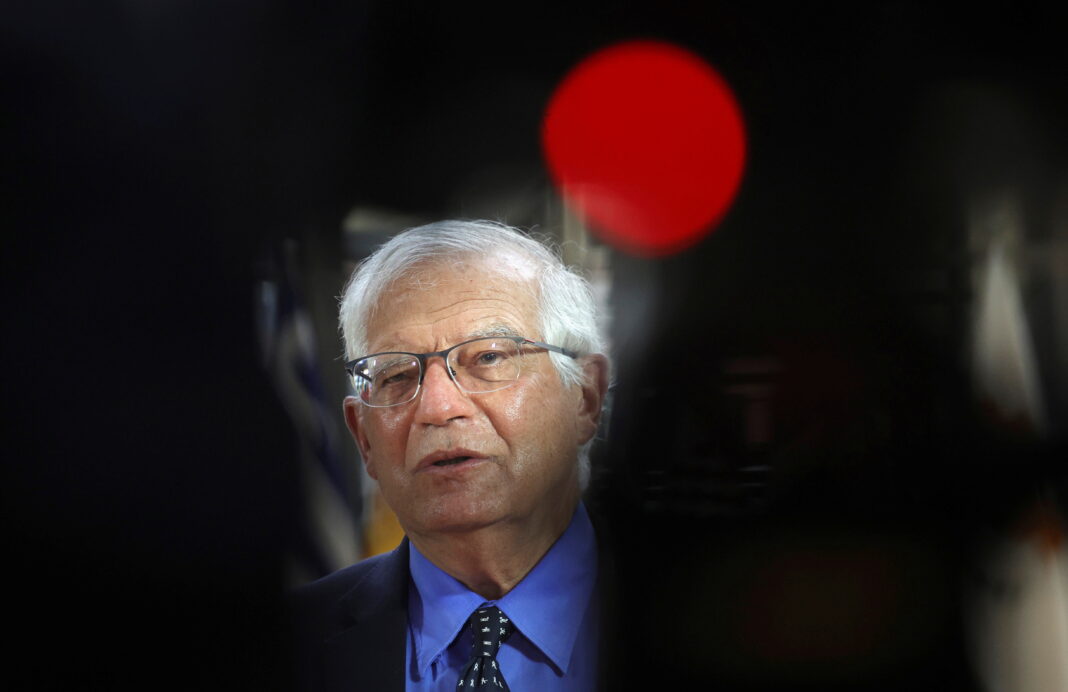Closed gates of the European Union led to “Open Balkan” initiative, the idea of forming a common market for countries waiting for EU membership, previously known as “Mini-Schengen Area”
With a long series of dissappointments and Macron’s stalling of the EU Enlargement process, the region of western Balkans has found itself abandoned, grasping for an economic straw to save themselves from drowning in unending debt. To many political leaders in the region, it seems that the road to “promised land” is only becoming longer and more exhausting, which drastically limits their campaign programmes and leads to a substantial loss of their electorate. The ever growing need for alternatives is becoming evident, in the region marked by a turbulent past and uncertain future.
Not One Inch (South-)Eastward
The EU accession process of the western Balkans has been a long and slow process, to say at the very least. On 9th of February 1990, U.S. Secretary of State James Baker gave a famous “not one inch eastward” assurance about NATO’s expansion, in his meeting with the leader of the Soviet Union Mikhail Gorbachev. This promise was broken, as NATO expanded fully to the east, encompassing almost all the countries pertaining to the Eastern Bloc. In a similar way, the public of western Balkans has started to percieve the assurances of the EU, regarding their accenssion process, as empty promises with no weight.
Besides the constant struggle with corruption and organized crime, which are prevalent in all countries of the western Balkans, great number of conditions have been met by EU candidates, with the most radical example being the name change of one of the countries. Former Yugoslav Republic of Macedonia, changed its name to “North Macedonia”, to resolve the dispute it had with Greece. It also became a member of NATO, even though there was no referendum held concerning this question, which only resulted in paused process, with Bulgaria now wanting to change the entire Macedonian identity.
Serbia also went through a long 21-year old process, after Milosevic was ovethrown, to reform itself and to be addmitted into the Union. All of these concessions only led to new requests, such as aligned foreign policy with the EU and full membership in NATO; as well as formal recognition of an independent Kosovo. This is highly unlikely to occur in the future, since 80% of Serbian citizens are against NATO membership, due to the fact that NATO bombed Yugoslavia in 1999, leaving the region contaminated with deepleted uranium. Even though, public opinion in Serbia sees favorably membership in the EU, with 51.2% being in favor; with a condition of independent Kosovo, 70.6% would oppose such decision.
The “Open Balkan” initiative
Closed gates of the European Union led to “Open Balkan” initiative, which was hosted as an Economic Forum of Regional Cooperation in capital of North Macedonia, at the end of July. The initiative, which was coined “Mini Schengen” at first, is the the idea of forming a common market for countries waiting for EU membership, with a free movement of goods and citizens and equal access to labour markets. It could enable countries to foster economic growth, without having to wait for Europe to resolve its internal issues and recover from enlargment fatigue. According to estimates of the World Bank, the initiative could save participating countries a whoopingly €2.71 billion each year.
At the summit, President Vučić of Serbia, Prime Minister Zaev of North Macedonia and Prime Minister Rama of Albania met to discuss and sign agreements, which were intendent on fostering economic and regional co-operation between the countries. However, it was evident that the initiative doesn’t have a full support, as there were no representatives from Bosnia and Herzegovina, Montenegro and Prishtina.
The reasons for their absence are rooted in the fear of irredentism and a possible hidden-agenda of the strongest military and economic power in the region, Serbia. Bosniaks in Sarajevo view the abolition of borders as a hidden attempt of Serbia to annex Republika Srpska, which will inevitably lead to the dissolution and partition of the country. Montenegro, besides being in the most privleged position in EU negotiations, has internal turmoil around the question of Serbian Orthodox Church in the country, which Western and NATO oriented President Milo Djukanovic sees as a threat to his 30 year old reign over the country. Kosovo still has issues concerning its recognition and status in the world, which it may find itself in different position, if there is unregulated free-movement in the region.
In Serbia, there are also concerns that this initiative, which was originally proposed by Albanian Prime Minister Rama, can lead to a creation of Greater Albania, thereby encompassing parts of Serbia, Montenegro and North Macedona. The region of Kosovo is also infamous for its drug and organ trafficing reputation, which, if left unregulated, can put the entire judicial system of the region at risk, making it hard to combat drug- and human trafficing, as well as organized crime.
The silver lining is that the initative, although smaller in its scope, can still succed without these three members. It can also, besides its economic impact, play a great role as a confidence building measure, and make the whole region more integrated and stable, while at the same time erasing the biggest trigger of confilcts in the Balkans, borders across ethnic lines. This “mini EU” is not only a great reminder for the Balkan countries that they are all children of one European civilization, but also a possible remedy and a tool for prevention of any future conflicts in the region, if it succeeds in its original thought.
Closed gates of the European Union led to “Open Balkan” initiative, the idea of forming a common market for countries waiting for EU membership, previously known as “Mini-Schengen Area”




